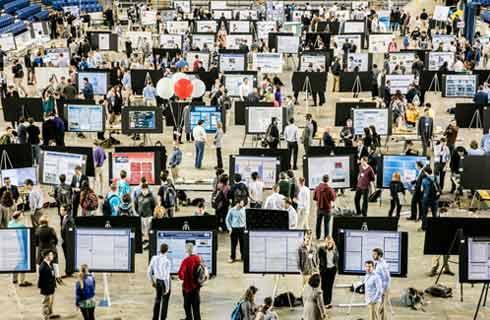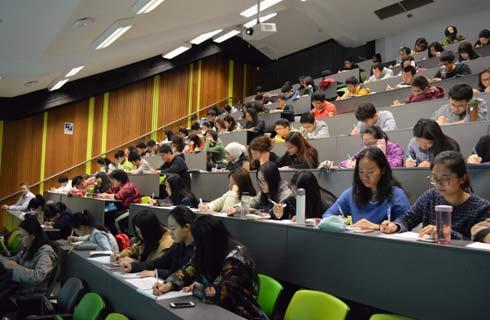国际学生入学条件
Undergraduate Preparation:
Applicants are expected to have a degree in physics or a related discipline from an accredited institution.
Standardized Tests:
Scores from the GRE General or Physics subject exam are not required to apply but will be considered if submitted. For example, Physics GRE scores can be useful in evaluating applicants with a non-standard path to graduate study in physics. All applications will receive full consideration whether GRE scores are submitted or not.
Transcripts
Applicants must upload unofficial transcripts of their entire post-secondary academic record to the online application, including all undergraduate- and graduate-level coursework. Applicants are expected to have achieved a minimum GPA of 3.0 in their undergraduate programs.
Statement of Purpose
The statement of purpose should indicate your reasons for applying to the proposed program at the University of Virginia and describe your preparation for this field of study, research interests, future career plans, and intellectual or life experiences in order to aid the admissions committee in evaluating your aptitude and motivation for graduate study. Your commitment to a selected field of study is presumed in the receipt of your application; instead, please discuss specific issues in the field that engage you. Please limit your submission to between 500 and 1,000 words.
The minimum internet-based (iBT) TOEFL score requirement is 90 (including sectional minimums of 22 in speaking, 22 in writing, 23 in reading and 23 in listening). The minimum paper-based TOEFL score requirement is 600. Applicants may submit scores from the International English Language Testing System (IELTS) as an alternative to the TOEFL exam. The minimum IELTS score requirement is 7.0 in each section.
展开
IDP—雅思考试联合主办方

雅思考试总分
7.0
- 雅思总分:7
- 托福网考总分:90
- 托福笔试总分:600
- 其他语言考试:NA
CRICOS代码:
申请截止日期: 请与IDP联系 以获取详细信息。
课程简介
Physics and mathematics have always been closely intertwined, with developments in one field frequently inspiring the other. Currently, there are many unsolved problems in physics which will likely require new innovations in mathematical physics. For example, theoretical physicists have used field theory to successfully describe the strong and electroweak interactions of particle physics, and all sorts of condensed matter physics. Most of our understanding has been based on perturbative calculations, valid when coupling constants are small. Nevertheless, we believe that quantum field theories describe subatomic physics even when couplings are large, for example, gauge theory should still describe the physics of confinement, which by its nature requires strong couplings. Moreover, experimental advances have allowed extensive scrutiny of condensed matter systems like the quantum Hall effect, quantum impurities and spin chains where the interactions are strong. Such systems often exhibit non-Fermi-liquid behavior, where perturbation theory around free electrons cannot even be formulated. Because perturbation theory is not useful for such problems, it is vital that new methods of understanding strong-coupling physics be developed. A number of such methods are under investigation at UVa. The Bethe Ansatz allows many two-dimensional models to be solved, for example, in the fractional quantum Hall effect, the point-contact tunneling amplitude was recently exactly computed. A symmetry between bosons and fermions called supersymmetry often yields exact results in any dimension. Recently, remarkable dualities between theories at weak coupling and those at strong coupling have been discovered. These and other methods are being developed further to provide not only new types of mathematics, but to describe the physical world.
展开







 预科
预科 奖学金
奖学金 实习机会
实习机会 在校学习
在校学习 跨境学习
跨境学习 校园授课-线上开始
校园授课-线上开始 在线/远程学习
在线/远程学习














 滑铁卢大学
滑铁卢大学

 麦吉尔大学继续教育学院
麦吉尔大学继续教育学院

 纽芬兰纪念大学
纽芬兰纪念大学

 萨斯喀彻温大学
萨斯喀彻温大学

 西蒙菲莎大学
西蒙菲莎大学

 滑铁卢大学
滑铁卢大学









 美国
美国